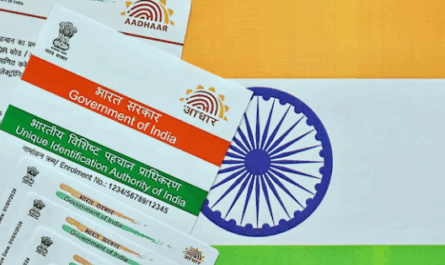Your credit score is one of the most important numbers in your financial life. But do you know who calculates this all-important three-digit number? The answer is credit bureaus. As an urban Indian, understanding what a credit bureau is and how it impacts your finances is crucial. In this article, we’ll explain the role of credit bureaus, how they collect and use your financial data, and provide a comprehensive list of the major credit bureaus in India.
What is a Credit Bureau?
A credit bureau is an organization that collects and maintains individual credit information. Credit bureaus gather data from various sources, including banks, non-banking financial companies (NBFCs), and credit card companies. This data includes details about your credit accounts, payment history, and outstanding debts.
Here’s a simple analogy to understand how credit bureaus work:
Imagine credit bureaus as meticulous record keepers who keep track of your financial behaviour. Just like your school maintains a report card of your academic performance, credit bureaus maintain a report card of your credit performance.
How Do Credit Bureaus Collect and Use Financial Data?
Credit bureaus collect your financial data from multiple sources:
-
Banks and NBFCs share data about your loans and credit cards
-
Utility companies may report your payment history for bills
-
Public records like bankruptcies and court judgments are also collected
Credit bureaus use this data to create your credit report, which includes:
-
Your personal information like name, address, and PAN
-
Details of your credit accounts, including type, limit, and outstanding balance
-
Your payment history, including late payments and defaults
-
Inquiries made by lenders when you apply for new credit
Here’s a table summarising the data collection process:
|
Data Source |
Type of Data Collected |
|---|---|
|
Banks & NBFCs |
Loan and credit card accounts |
|
Utility Companies |
Payment history for bills |
|
Public Records |
Bankruptcies, court judgments |
Importance of Checking Your Credit Report
Regularly checking your credit report is essential for several reasons:
-
Identify Errors: Mistakes in your credit report can lower your credit score. By reviewing your report, you can spot and dispute any errors.
-
Detect Fraud: Checking your credit report can help you identify any fraudulent accounts opened in your name.
-
Understand Your Credit Health: Your credit report provides a snapshot of your overall credit health, allowing you to make informed financial decisions.
For example, let’s say you’re planning to apply for a personal loan to fund your child’s education. Before applying, you check your credit report and find a few late payments that are lowering your credit score. By identifying and resolving these issues proactively, you can increase your chances of getting approved for the loan at a favourable interest rate.
Major Credit Bureaus in India
India has four major credit bureaus:
-
TransUnion CIBIL
-
Experian
-
Equifax
-
CRIF High Mark
Here’s a detailed look at each bureau:
-
TransUnion CIBIL:
-
Established in 2000, TransUnion CIBIL is India’s oldest and most well-known credit bureau.
-
It maintains credit records of over 600 million individuals and 32 million businesses.
-
You can access your CIBIL report and score through their website or the Airtel Thanks app.
-
-
Experian:
-
Experian is a global credit bureau operating in India since 2010.
-
It provides credit reports, scores, and analytics to both individuals and businesses.
-
You can obtain your Experian credit report online through their website.
-
-
Equifax:
-
Equifax is another global credit bureau that has been operating in India since 2010.
-
It offers credit reports and scores to individuals and businesses.
-
You can request your Equifax credit report through their website.
-
-
CRIF High Mark:
-
CRIF High Mark is an Indian credit bureau founded in 2005.
-
It maintains credit records of over 150 million individuals and 10 million businesses.
-
You can access your CRIF High Mark credit report and score through their website.
-
Impact of Credit Bureaus on Your Credit Score
Your credit score is a three-digit number that represents your creditworthiness. It is calculated based on the information in your credit report. Credit bureaus use complex algorithms to calculate your credit score, taking into account factors like:
-
Payment history
-
Credit utilization
-
Length of credit history
-
Types of credit
-
New credit inquiries
Here’s an example of how credit bureaus impact your credit score:
Let’s say you have a credit card with a limit of ₹50,000. You regularly use the card and make timely payments. This positive payment history is reported to the credit bureaus, which can boost your credit score over time.
On the other hand, if you max out your credit card and miss payments, this negative information is also reported to the credit bureaus. As a result, your credit score may take a hit, making it harder for you to access credit in the future.
Frequency of Credit Report Updates
Credit bureaus typically update credit reports every 30-45 days. However, the exact frequency may vary depending on when lenders report data to the bureaus.
For example, if you make a payment on your credit card on the 15th of the month, and your card issuer reports the payment to the credit bureau on the 30th, the bureau will update your credit report shortly after receiving the information.
It’s important to note that not all lenders report to all credit bureaus. Therefore, your credit report may vary slightly across different bureaus.
Conclusion:
Credit bureaus play a vital role in your financial life. By understanding what a credit bureau is, how they work, and the major players in India, you can take control of your credit health. Remember to regularly check your credit report, maintain a positive payment history, and use credit responsibly. Doing so can help you build a strong credit profile, unlocking access to better financial opportunities in the future.
Airtel Finance offers a range of services to help you stay on top of your credit health. With the Airtel Thanks app, you can easily access your credit score, determine your eligibility criteria, submit your documents online, track your progress, and get personalised insights to improve your creditworthiness. Additionally, Airtel Finance provides a personal loan product that can help you meet your financial goals while building a positive credit history. By leveraging these tools and resources, you can take charge of your financial future and achieve your dreams.
FAQs:
-
What is a credit bureau, and what does it do?
A credit bureau is an organization that collects and maintains credit information on individuals. It gathers financial data, creates credit reports, and calculates credit scores. -
How does a credit bureau collect and use financial data?
Credit bureaus collect data from banks, NBFCs, utility companies, and public records. They use this data to create credit reports and calculate credit scores, which lenders use to assess creditworthiness. -
Why is it important to check your credit report from a credit bureau?
Checking your credit report helps you identify errors, detect fraud, and understand your credit health. By regularly reviewing your report, you can make informed financial decisions and improve your creditworthiness. -
What are the major credit bureaus in India?
The four major credit bureaus in India are TransUnion CIBIL, Experian, Equifax, and CRIF High Mark. Each bureau collects and maintains credit records of individuals and businesses. -
How do credit bureaus impact your credit score?
Credit bureaus calculate your credit score based on the information in your credit report. Factors like payment history, credit utilization, and types of credit impact your score. -
How often do credit bureaus update credit reports?
Credit bureaus typically update credit reports every 30-45 days, depending on when lenders report data. However, not all lenders report to all bureaus, so your report may vary slightly across bureaus.



